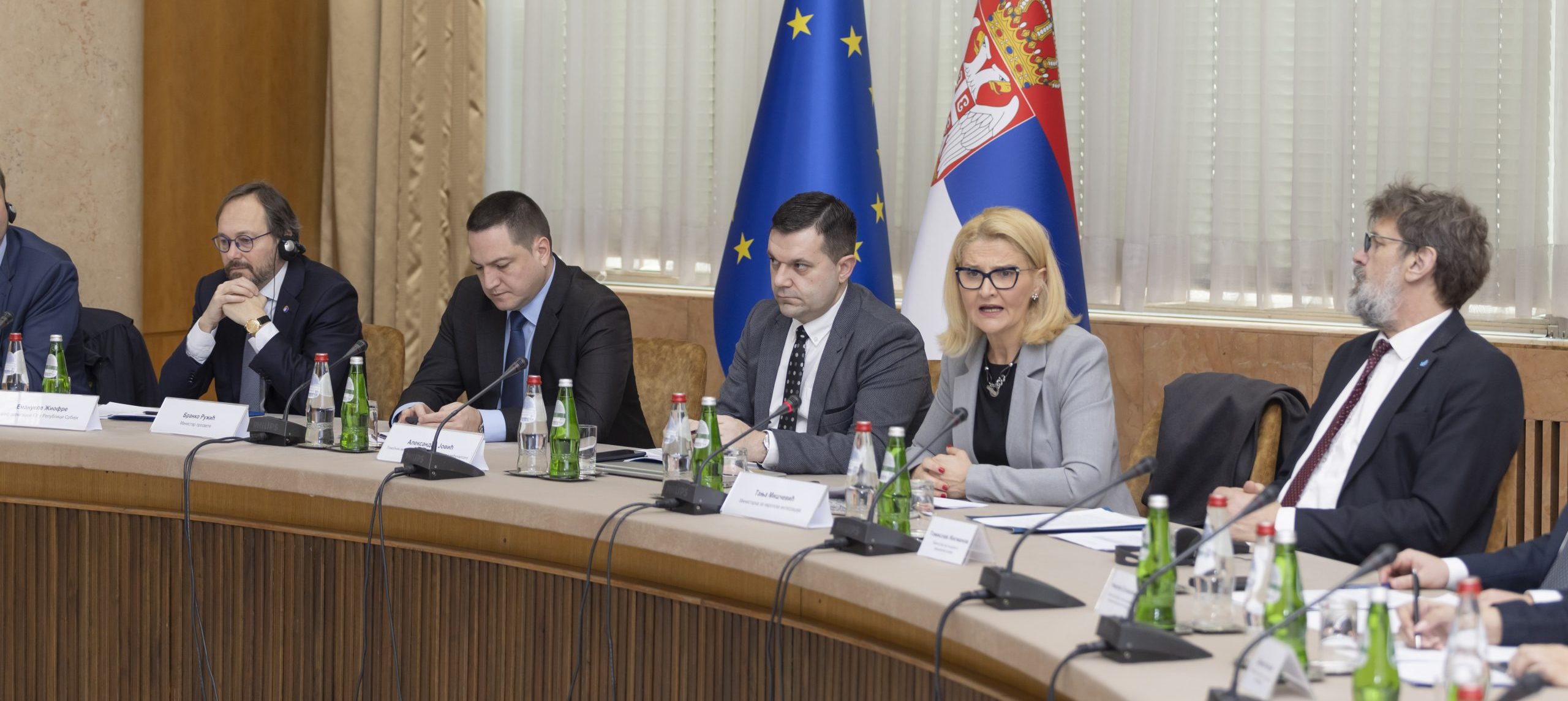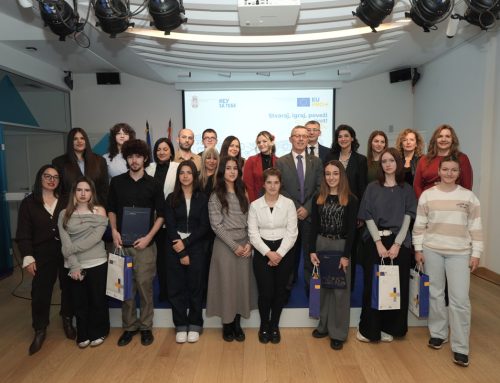“Investing in young people and education is crucial, because young people must acquire skills and competences to navigate the complexities of the modern world. It is also extremely important that every child has the same opportunity to learn, access education and acquire the necessary skills. That is why the EU supports Serbia in reforming education and aligning it with policy guidelines at the EU and regional level,” said the EU Ambassador to Serbia, Emanuele Giaufret, at the meeting of the Inter-Ministerial Council for monitoring and directing the implementation of the reform in the field of education.
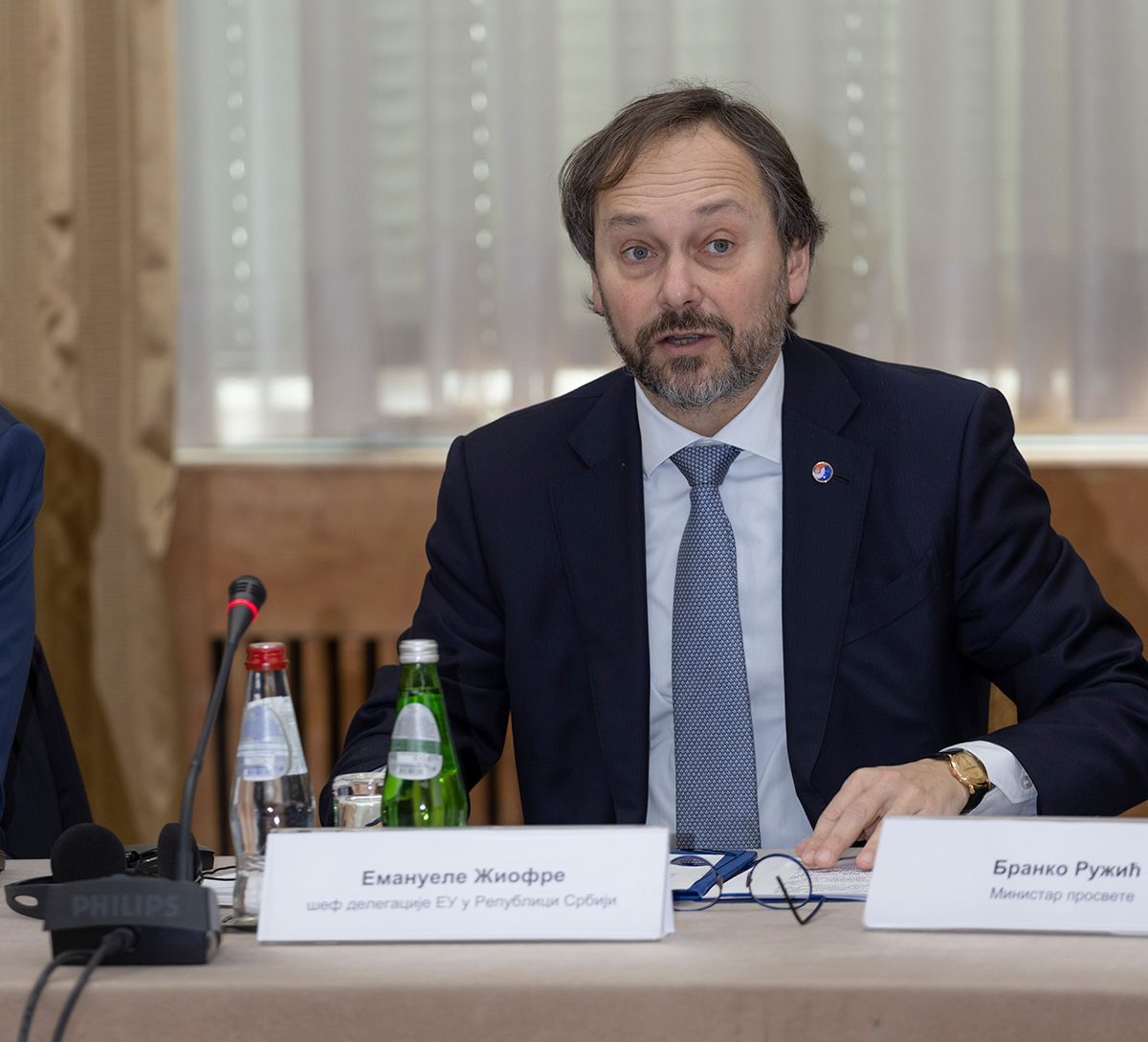 In order to contribute to quality education being available to every child, the European Union enabled the hiring of over 250 new pedagogical assistants to work with the children who need additional help in education. In addition, over 1,000 high school students of the Roma national minority received scholarships and better conditions for education.
In order to contribute to quality education being available to every child, the European Union enabled the hiring of over 250 new pedagogical assistants to work with the children who need additional help in education. In addition, over 1,000 high school students of the Roma national minority received scholarships and better conditions for education.
As stated in the EC Progress Report for 2022, Serbia made progress in the past year, especially in consolidating the National Qualifications Framework and taking steps to ensure compliance of the quality assurance system in higher education with the EU recommendations.
“The 2030 National Youth Strategy was recently adopted, and we look forward to the action plans and documents that are being prepared and that will guide Serbian education policy in the coming period, and the EU remains a partner and supporter of Serbia in reforms for better education for young people,” Giaufret.
Minister of Education Branko Ružić said today that the Government of Serbia continues to recognise education as one of its absolute priorities and expressed satisfaction with the results achieved in the past period in that area.
Ružić also pointed out that it is encouraging that these results were recognised and praised by the European Union.
“The process of implementing reforms in the field of education in Serbia during the previous years received a positive assessment from the Delegation of the European Union. This is a confirmation of commitment in implementing the reform and improving the quality of the education system, so that the system would be as fair and efficient as possible,” said the minister.
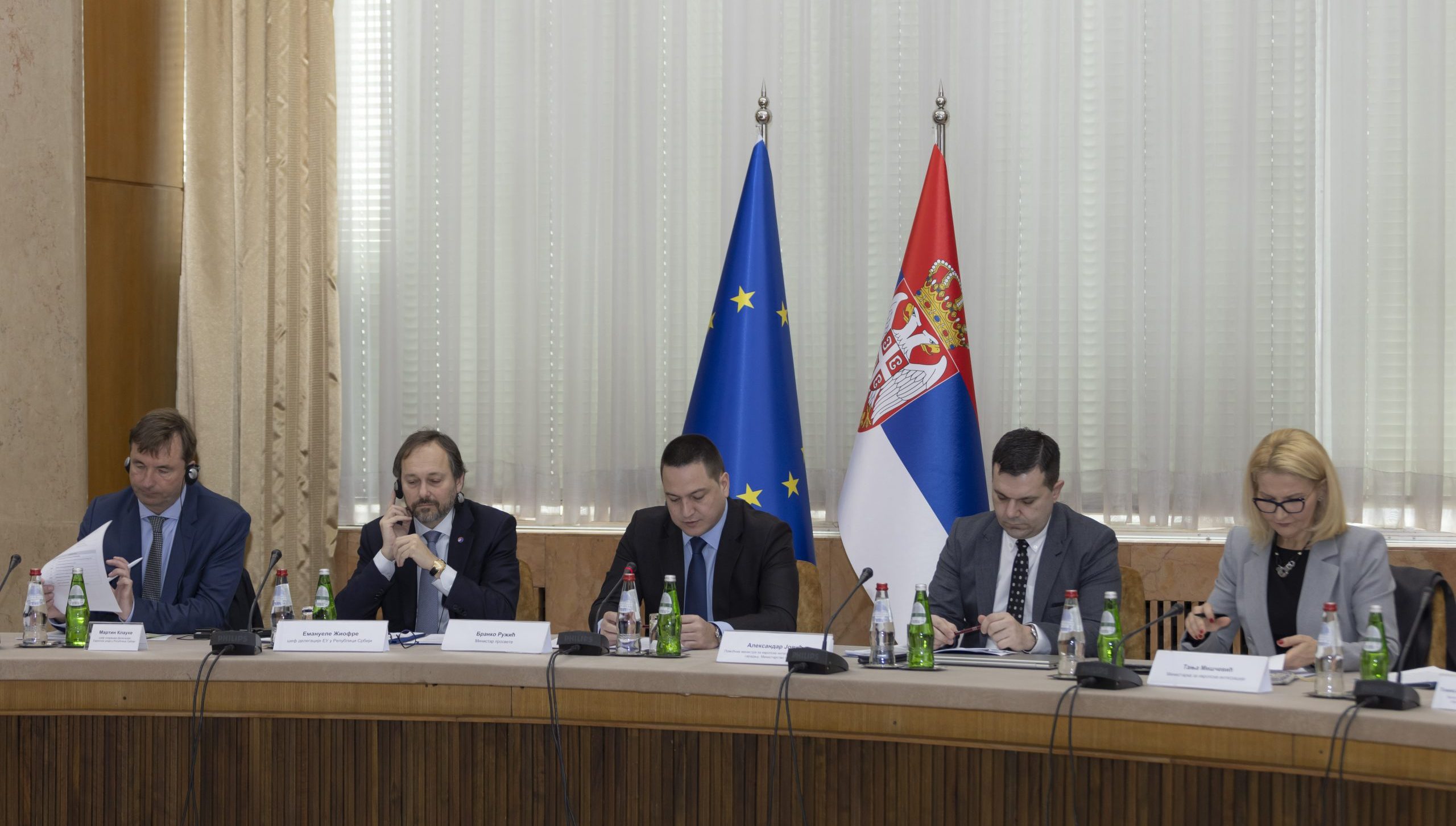
He reminded that with the adoption of the Strategy for the Development of Education in the Republic of Serbia until 2030, the importance of reforming the education system was confirmed, as well as that clear and comprehensive measures and activities were foreseen to fulfil the set goals.
“We are very grateful to the European Union, which in the previous period recognised the quality of our strategic framework valid until 2020 and supported reform activities in the field of education,” said Ružić.
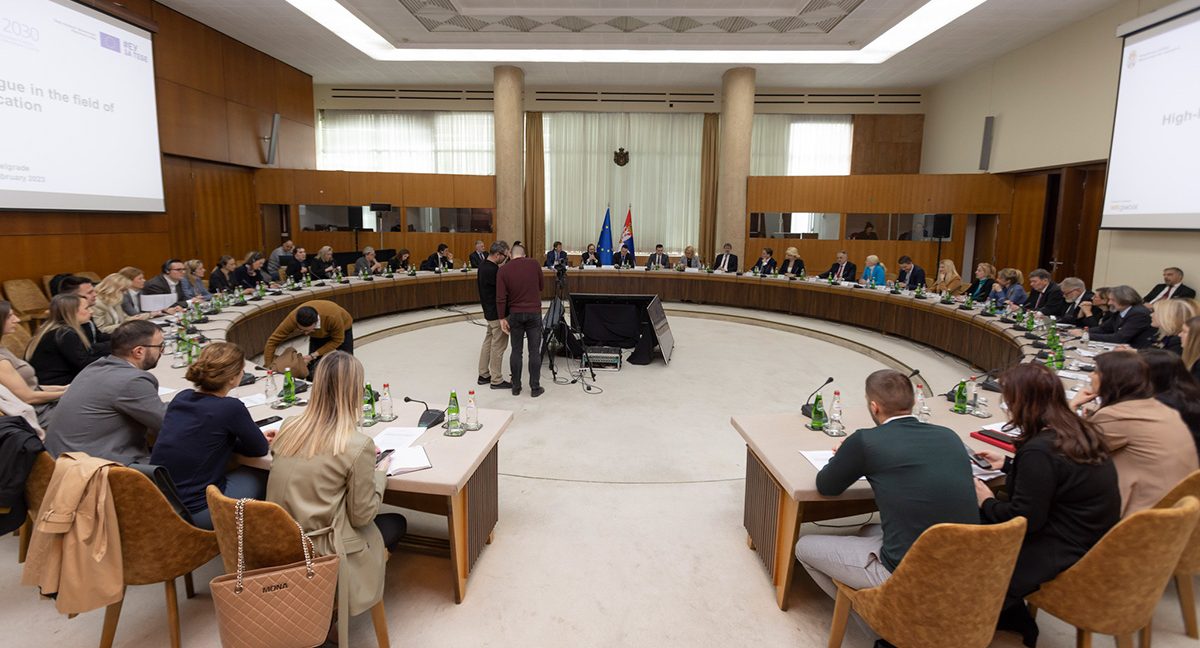
As it was pointed out, the European Commission also welcomed the fact that the Ministry of Education has started work on the development of the Action Plan for the period from 2023 until 2026, which is necessary for the implementation of the Education Development Strategy until 2030.
The European Commission assessed that it is very important that Serbia established the National Qualifications Framework (NQF), as well as that it adopted the National Report on Inclusive Education for the period from 2019 until 2021, which presents challenges when it comes to increasing the coverage and improving the quality, equity, efficiency and relevance of inclusive education.
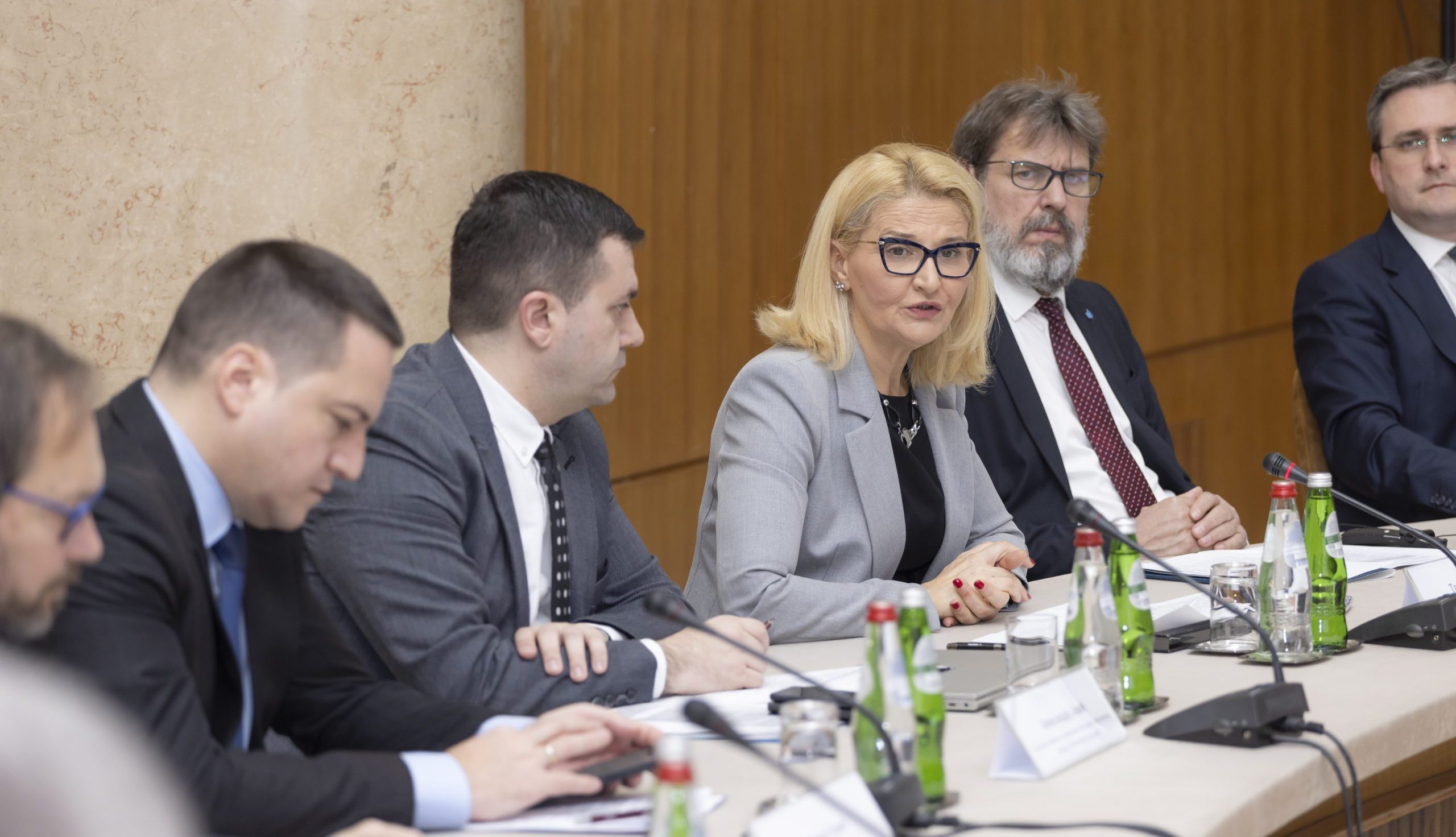
The following officials, among others, have been present at today’s meeting: the Minister for European Integration – Tanja Miščević, the Minister for Family Care and Demography – Darija Kisić, the Minister of Science, Technological Development and Innovation – Jelena Begović, the Minister for Labour, Employment, Veterans and Social Affairs – Nikola Selaković, the Minister of Sport – Zoran Gajić and Minister for Human and Minority Rights – Tomislav Žigmanov, as well as the representatives of the Ministry of Finance, Justice and Tourism and Youth.
The European Union, as the largest donor in Serbia, supports the modernisation of the education system and harmonization with the standards and practices of EU countries. Since 2003, the EU has donated more than 100 million euros for the reform of the education sector – for the improvement of preschool education, the reform of secondary vocational education and adult education, renovation and equipping of schools and colleges, support for inclusive education, etc.

